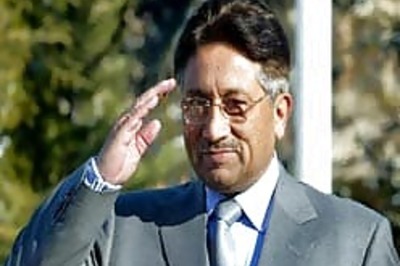
views
Nine months into the year, nine student suicides have been reported at the Indian Institutes of Technology (IITs), at least four of the deceased belonging to the reserved categories. And yet, barring a few IITs, most do not have an active or functional SC/ST or inclusion cell with standard guidelines to address grievances of students.
The fear of being tagged a “quota student” is real. Discrimination by fellow students, faculty, staff and a strong anti-reservation sentiment throws students from disadvantaged communities into “self-doubt”. The lack of confidence in counselling or grievance redressal services available on campus further pushes such students to the brink, IITians from the SC/ST communities told News18.
Only the IITs at Delhi, Bombay and Guwahati have dedicated and active Scheduled Caste (SC)/Scheduled Tribes (ST) cells that operate separate websites to help students. IIT-Madras, the most affected campus, has high-powered committees on SC/ST/OBC. The Delhi campus, which set up its cell this March, is the only IIT to have a cell with a clearly drafted mandate.
Recently, a Right to Information (RTI) application filed by the Ambedkar Periyar Phule Study Circle (AAPSC), a students’ collective at IIT-Bombay that has been actively working against caste-based discrimination at IITs, found that 16 of the 19 SC/ST cells at IITs across the country are non-functional, while four IITs didn’t even have an SC/ST cell.
Though the Centre claims that 19 of the 23 IITs have dedicated cells for the welfare of SC/ST students, 16 of them are non-functional, the data revealed. While 18 cells did not have any funds, 16 have not conducted any events since August 2022. Besides, 12 cells did not have rooms allotted for meetings and 10 do not have any information about reservation, or any mechanism to check implementation of central government’s reservation policy, the RTI response revealed.
The APPSC said it was after the suicide by first-year Dalit student Darshan Solanki that the cell at IIT-B was expanded to have three faculty convenors as well as three student representatives.
“The SC/ST cell here, which has been active enough, still doesn’t have a mandate clarifying its functions, composition, powers and responsibilities. We helped the cell draft a mandate last year, but it hasn’t been passed by the institute so far. As compared to the gender cell, which has a proper mandate document and an annual report published every year of its activities, the SC/ST cell is not as organised or even as recognised as a crucial body as other units,” said an APPSC member, requesting anonymity.
He added that there is a severe lack of representation of reserved communities at the faculty level and students often don’t know whom to reach out to for help. Out of the 700-odd faculty strength at IIT-B, only 13 are from SC/ST categories.
“Until last year, we had worked closely with the SC/ST cell, but after Darshan Solanki’s case, we gave up hope on the body, as the faculty is not ready to accept that caste discrimination, be it subtle or in the face, did exist on campus. Over the past years, we saw that students who tried to approach the body for complaint redressal were instead forced to withdraw it. Two such complaints, one each in 2019 and 2021, were made against faculty members,” the APPSC member quoted above said.
Until September this year, nine student suicides have been reported from different IITs. Of these, five incidents took place at IIT-Madras, two from IIT-Delhi and one each from IIT-Bombay and IIT-Hyderabad. Solanki from IIT-B, Ayush Ashna and Anil Kumar from IIT-Delhi while Mamitha Naik from IIT-Hyderabad belonged to the SC community.
News18 has sent queries to these IITs for a response on the issues being raised by students and faculty. This report will be update once a response is received.
A research scholar from another student collective, Chintabar, at IIT-Madras, said that though there is a high-powered committee for SC/STs, it is essentially an enquiry committee and comes into action only when there is a complaint. It doesn’t have any meetings with students from the communities or organise events for them as such to bring an awareness about the issue.
“Not many complaints are able to reach the committee, as many who may be facing such bias don’t have the confidence to access it. Often, when undergraduate student joins, they are asked about their rank by fellow students, which becomes an indirect way of discriminating against them, revealing their reservation status. At times, students from reserved communities struggle with language barrier, and if you are not from an urban setting or do not fit in well, you may feel isolated. This also weighs down heavily on their academic performance as they start doubting their worth,” said the student representative from Chintabar.
He added that though the institute is taking up active measures to improve the mental health situation after the recent deaths by suicide, such as conducting surveys to identify students who are facing issues, its felt that these measures do not do enough to address socio-economic aspects of mental health.
“In general, we have come across subtle acts of casteism, for example, in forming peer groups etc. The elite nature of cultural and co-curricular spaces makes students from non-elite background feel excluded,” the scholar said.
A faculty member from one of the IITs agreed that, to a certain or subtle degree, caste discrimination does exist across campuses, which is not just limited to IITs. “There is a new awareness that is being created on all campuses in the wake of the recent cases. The point I want to make is that even if one student on a campus of 4,000 is affected by this kind of bias, the institute has to ensure that its looked into and worked upon,” the faculty member said, requesting not to be named.
An APPSC group that started functioning at IIT-Mandi, a second-generation IIT, during the Covid-19 pandemic said that they have been demanding setting up of an active SC/ST cell since 2020, but in vain. “There have been instance of caste-based bias here and even issues about not allowing non-vegetarian food. The institute is yet to set up a committee that it said will take a decision on the same,” said a student, requesting anonymity.
As per data shared in Parliament this year, 39 of the 98 student suicides across top higher education institutions in the country over the past five years have taken place at IITs.
Over 70% seats across IITs are set aside for the reserved categories, which also includes quota for economically weaker sections (EWS) and minority communities. According to government data shared in Parliament in 2021, a total of 122 students from centrally-funded higher education institutions — IITs, NITs, central universities, IIMs and others — died by suicide during 2014-21. Of these, 58% students were from reserved categories.
If you or someone you know needs help, call any of these helplines: Aasra (Mumbai) 022-27546669, Sneha (Chennai) 044-24640050, Sumaitri (Delhi) 011-23389090, Cooj (Goa) 0832- 2252525, Jeevan (Jamshedpur) 065-76453841, Pratheeksha (Kochi) 048-42448830, Maithri (Kochi) 0484-2540530, Roshni (Hyderabad) 040-66202000, Lifeline 033-64643267 (Kolkata)



















Comments
0 comment